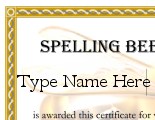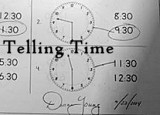IX. - The Art of Narrating
Children Narrate by Nature. - Narrating is an art, like poetry-making or painting, because it is there, in every child's mind, waiting to be discovered, and is not the result of any process of disciplinary education.
A creative fiat calls it forth. "Let him narrate"; and the child narrates, fluently, copiously, in ordered sequence, with fit and graphic details, with a just choice of words, without verbosity or tautology, so soon as he can speak with ease. This amazing gift with which normal children are born is allowed to lie fallow in their education. Bobbie will come home with a heroic narrative of a fight he has seen between "Duke" and a dog in the street. It is wonderful! He has seen everything, and he tells everything with splendid vigour in the true epic vein; but so ingrained is our contempt for children that we see nothing in this but Bobbie's foolish childish way! Whereas here, if we have eyes to see and grace to build, is the ground-plan of his education.
Until he is six, let Bobbie narrate only when and what he has a mind to. He must not be called upon to tell anything. Is this the secret of the strange long talks we watch with amusement between creatures of two, and four, and five? Is it possible that they narrate while they are still inarticulate, and that the other inarticulate person takes it all in? They try us, poor dear elders, and we reply "Yes," "Really!" "Do you think so?" to the babble of whose meaning we have no comprehension. Be this as it may; of what goes on in the dim region of "under two" we have no assurance. But wait till the little fellow has words and he will "tell" without end to whomsoever will listen to the tale, but, for choice, to his own compeers.
This Power should be used in their Education. - Let us take the goods the gods provide. When the child is six, not earlier, let him narrate the fairy-tale which has been read to him, episode by episode, upon one hearing of each; the Bible tale read to him in the words of the Bible; the well-written animal story; or all about other lands from some such volume as The World at Home [see example below]. The seven-years-old boy will have begun to read for himself, but must get most of his intellectual nutriment, by ear, certainly, but read to him out of books. Geography, sketches from ancient history, Robinson Crusoe, The Pilgrim's Progress, Tanglewood Tales, Heroes of Asgard, and much of the same calibre, will occupy him until he is eight. The points to be borne in mind are, that he should have no book which is not a child's classic; and that, given the right book, it must not be diluted with talk or broken up with questions, but given to the boy in fit proportions as wholesome meat for his mind, in the full trust that a child's mind is able to deal with its proper food.
The child of eight or nine is able to tackle the more serious material of knowledge; but our business for the moment is with what children under nine can narrate.
Method of Lesson. - In every case the reading should be consecutive from a well-chosen book. Before the reading for the day begins, the teacher should talk a little (and get the children to talk) about the last lesson, with a few words about what is to be read, in order that the children may be animated by expectation; but she should beware of explanation and, especially, of forestalling the narrative. Then, she may read two or three pages, enough to include an episode; after that, let her call upon the children to narrate, - in turns, if there be several of them. They not only narrate with spirit and accuracy, but succeed in catching the style of their author. It is not wise to tease them with corrections; they may begin with an endless chain of "ands," but they soon leave this off, and their narrations become good enough in style and composition to be put in a "print book"!
This sort of narration lesson should not occupy more than a quarter of an hour.
The book should always be deeply interesting, and when the narration is over, there should be a little talk in which moral points are brought out, pictures shown to illustrate the lesson, or diagrams drawn on the blackboard. As soon as children are able to read with ease and fluency, they read their own lesson, either aloud or silently, with a view to narration; but where it is necessary to make omissions, as in the Old Testament narratives and Plutarch's Lives, for example, it is better that the teacher should always read the lesson which is to be narrated.
[from volume 1]
Q. Tell about the North-West Passage. (Book studied, The World at Home.)
E. (aged 7)
"People in England are very fond of finding things out, and they wanted to find out the North-West Passage. If people wanted to go to the Pacific Ocean, they had to go round Africa, by the Cape of Good Hope, or else round South America by Cape Horn. This was a very long way. They thought they might find out a shorter way by going along the North Coast by America, and they would come out in the Pacific Ocean. They would call this way the North-West Passage. First one man and then another tried to find a way. They found a lot of straits and bays which they called after themselves. The enemy they met which made them turn back was the cold. It was in the frozen zone, and the sea was all ice, and the ice lumps were as big as mountains, and when they carne against a ship they crashed it to pieces. Once a man named Captain Franklin tried over and over again to find the North-West Passage, and once he went and never came back again, for he got stuck fast in the ice, and the ice did not break, and he had not much food with him, and what he had was soon eaten up, and he could not get any more, for all the animals in that country had gone away, for it was winter, and he could not wait for the summer, when they would return. A ship went out from England called the Fox to look for him, but all they found was a boat, a Bible, a watch, and a pair of slippers near each other. After looking a lot they found the North-West Passage, but because there is so much ice there the ships can't use it."
[from volume 3]
Hello Visitor!
I am currently working on this website to add to its ginormousness. Thank you for visiting, and please subscribe yearly to access my many printable files! Donna Young
May 13, 2021

 Color Theory Assignment Suggestions
Color Theory Assignment Suggestions
 New set of Telling Time worksheets
New set of Telling Time worksheets


